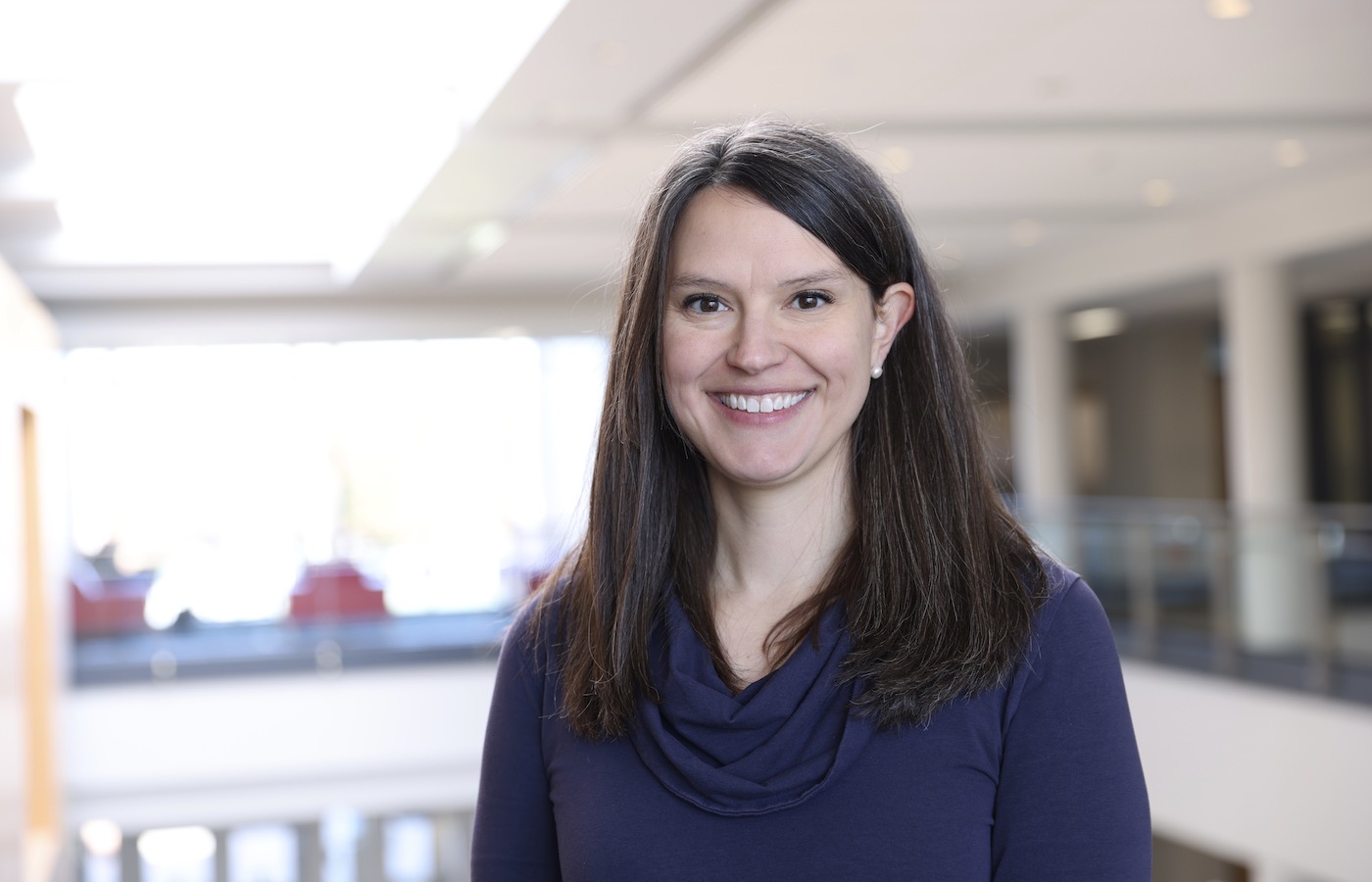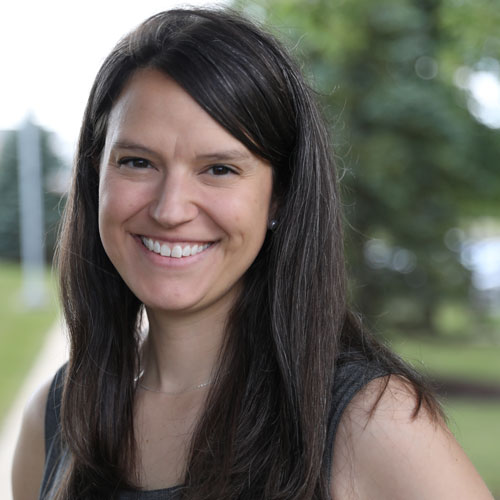A Conversation with Carrie Ellis, Army Physical Therapist

Role at DeSales: Assistant professor, chair of sport and exercise physiology department
Branch of service: Inactive ready reserve, Army physical therapist
What did you hope to achieve by entering the military?
It was an opportunity for me to grow as a new physical therapist. PTs in the Army have a much larger scope of practice than civilian therapists. They can order imaging and medications, and do joint manipulations, among other things. I graduated shortly after the 2008 global economic recession, so job security and tuition reimbursement were also a huge benefit.
What was your average day like while serving?
When I worked in the 82nd Airborne Division as the brigade physical therapist, I would go in around 6AM to help evaluate acutely injured soldiers during “sick call.” After that, I treated patients in the clinic. Some days, I would have to do training with my unit, like going to the range to practice firing our weapons, and field training exercises. Since I was in an Airborne unit, I was a paratrooper and had to maintain my proficiency by practicing airborne operations every few months.
Why did you choose to transition to teaching?
I separated from the Army after my first son was born but was able to continue to work with soldiers as a contract physical therapist and instructor at the John F. Kennedy Special Warfare Center and School, which is where soldiers train in the hopes of becoming special forces (Green Berets). I felt like I could make a greater impact by teaching others to be great clinicians instead of treating individual patients myself.
How did your experience in the Army help you become a better medical provider and teacher?
I learned a lot about service leadership in the Army, which I see reflected in our core values here at DeSales. For instance, leaders eat last. What this means is that a good military leader takes care of their troops by putting others’ needs first. As an assistant professor at DeSales, my priority is my students and doing everything I can to help them reach their goals. When I was teaching soldiers, I had to build buy-in and trust quickly. I use a lot of those skills in the classroom to get my students engaged.
How else have you used the skills you honed in the Army?
I volunteered at the Olympic Training Center in Colorado Springs in 2015, where I worked with athletes who went on to compete (and medal) in the 2016 Rio Olympics. I was surprised to find that how I was treating patients in the Army was similar to what we were doing at the OTC to train elite athletes. They devoted their whole lives to the sport—many of them lived there year-round and their whole day was centered around training.
This November, DeSales is highlighting members of our campus community who have served or are currently serving in the armed forces. We appreciate all that you do.





